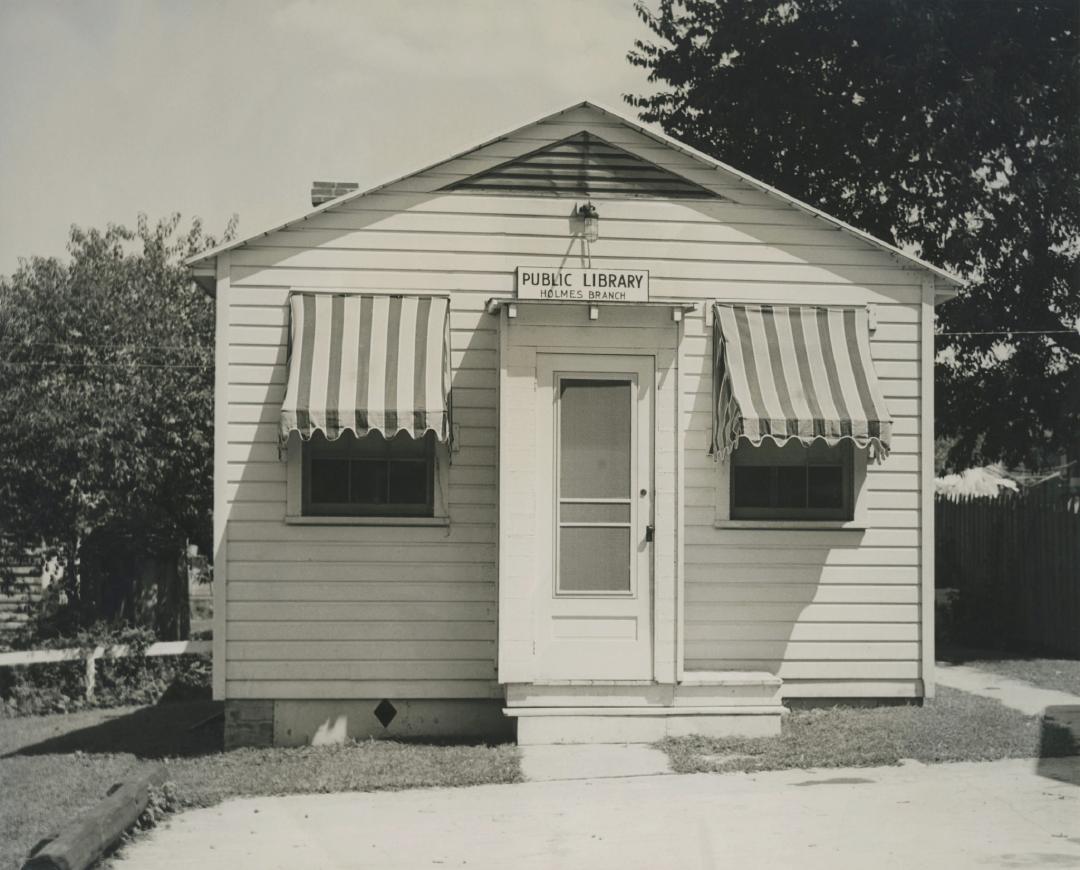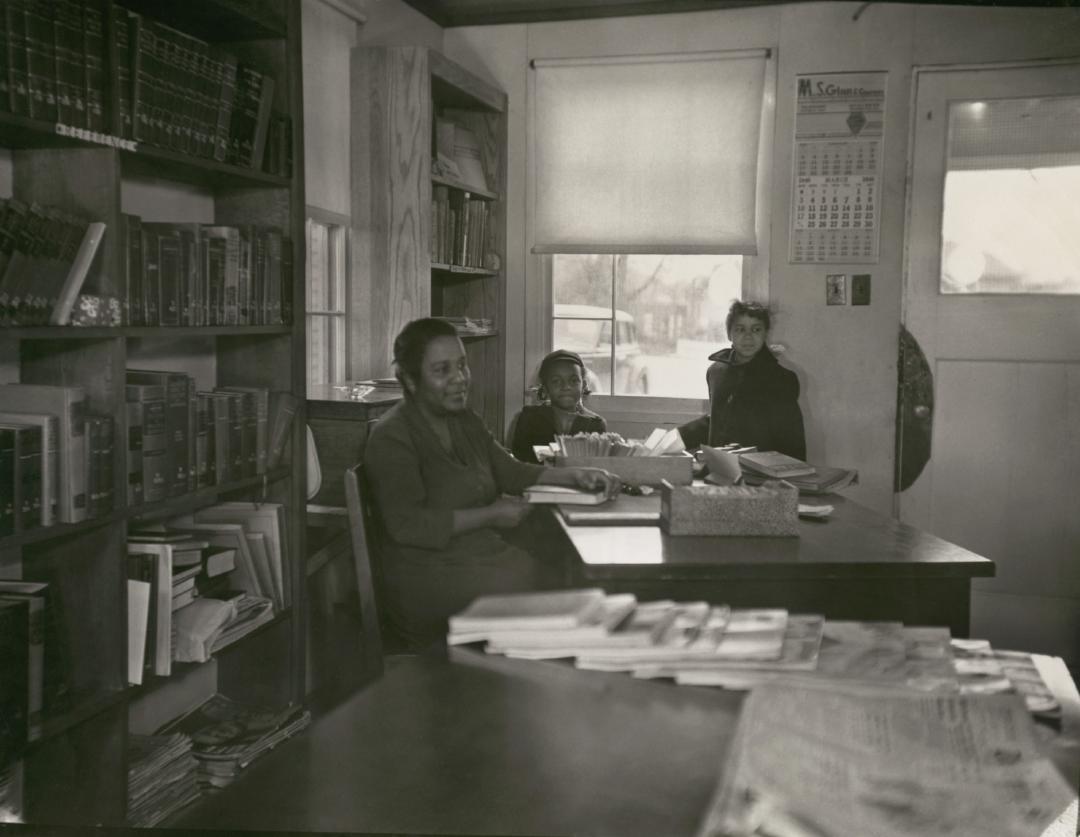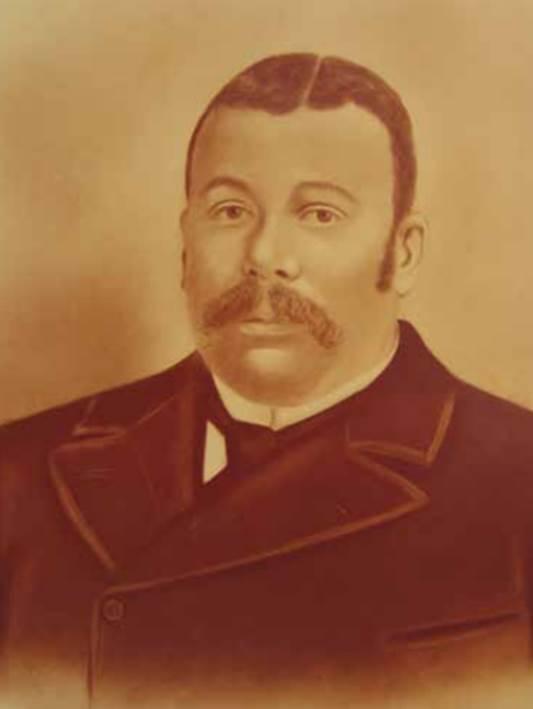Henry L. Holmes Library

The library was opened because of the laws related to the “separate but equal” doctrine.
The Henry Louis Holmes Library was established in 1940 as a community-led facility to fill the gap created by segregationist County and state policies. The library provided access to books and material resources to the County’s Black residents who had been denied such services. A group of Black Arlingtonians worked together to establish an independent branch.
The Holmes Library would later join the still-segregated County library system as the only branch available to Black Arlingtonians until its closure in 1949 and the subsequent desegregation of Arlington's libraries in 1950.
Arlington’s at-large library system began as a series of volunteer-run organizations, which were later incorporated into the County in 1937. Volunteer and civic groups across the County’s neighborhoods started five local branches in the early 20th century: Glencarlyn, Cherrydale, Clarendon, Aurora Hills, and Arlington (later Columbia Pike).
After operating independently for years, the Arlington County Library Association was formed in 1936. The following year, Libraries became an official County department with a budget that included funds allocated for the hiring of a library director.
From their founding, these branches only provided services to white constituents.
Facing this lack of local and accessible resources, a group of Black Arlington residents, without financial assistance from the County, came together to establish the Henry Louis Holmes Library Association in July 1940 to maintain a library for use by the Black community. Since this library would serve Black residents across the County, representatives from organizations across Arlington were also called to join in the efforts. Early members represented the Civic Association of Halls Hill, the Nauck neighborhood, and the Jennie Dean Club.
A Board of Directors was also assembled, including the Reverend A. Mackley (representing Mount Olive Baptist Church), Mrs. Henry Chapman, Mrs. Jessie Pollard, Mrs. Annie Belcher, and Mrs. Nora Drew (Mrs. Drew was the matriarch of the Drew family and mother of Charles Drew, a pioneering surgeon and founder of the modern-day blood bank. Her daughter, Nora Drew Gregory, became a well-known library advocate and library board trustee for Washington, D.C.).
The group then selected officers and committees, including the Constitution; Name; Books; Accessioning and Cataloging; Program; Ways and Means; Publicity; and Rooms committees. Selected as its first president was Kitty Bruce, with Marie Ponce serving as secretary. Kitty Bruce was chairwoman of the Arlington Inter-Racial Commission and a teacher at the Francis Junior High School in Washington, D.C., a school for Black children living in the Foggy Bottom and Georgetown neighborhoods.
In August 1940, the Library Association voted to honor Henry Louis Holmes in its name and the name of its forthcoming branch. Holmes had been a prominent local civic leader, serving as the elected Commissioner of Revenue for Alexandria from 1877 to 1904. Previously enslaved, Holmes had come to Freedman's Village in Arlington in his early life. He gained political success in the Reconstruction-era boom of Black political leaders. He was involved with the Radical Republican party, as well as in fraternal organizations such as the Masons and Odd Fellows, and as a trustee of St. John’s Baptist Church. He also founded the Butler-Holmes community, a Black streetcar neighborhood in what is now the Penrose neighborhood.
Images


